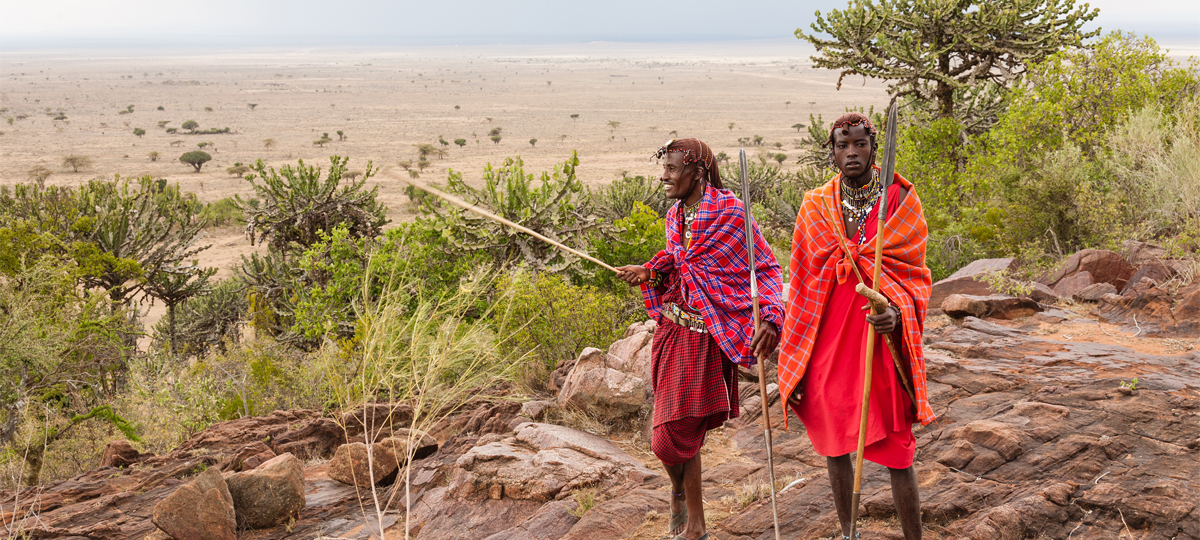Kenya Travel Tips
Time Zone
The time zone in Kenya is GMT +3 hours throughout the year.
Language
English and Swahili are the official languages in Kenya.
Currency
The unit of currency is the Kenya Shilling. Notes are issued in denominations of 50, 100, 200, 500, and 1000 Shillings. Coins are issued in denominations of 1, 5, 10, 20 and 40 Shillings.
Money Matters
The small amount of local currency you may need during your stay in Kenya can be obtained at authorized facilities (such as at authorized hotels, banks and foreign exchange bureaus). Clients going directly on safari upon arrival in Nairobi may exchange money at the airport currency exchange if they wish.
Tipping
Porters: A tip of US $1.00 per person is appropriate for two pieces of baggage at airports, hotels, lodges and camps. If you are travelling with more than two pieces of baggage, an additional tip of US $1.00 per bag is recommended.
Driver-Guide: One driver-guide accompanies each land vehicle on safari. It is customary to tip your driver-guide on the last day you are with him or her. Approximately US $5 - US $7 per traveller per day is considered a good tip for a driver-guide (based on 4 – 6 travellers in a vehicle). If there are only 2 or 3 travellers in a vehicle, you may consider raising this amount to approximately US $6 - US $8 per traveller per day in recognition of the individual attention given to a smaller size group.
Safari Escort: In addition to a driver-guide, some groups are accompanied by a professional safari escort. It is customary to tip your safari escort on the last day you are with him or her, and the recommended tip is US $8 to US $10 per traveller, per day. As with the tip for a driver guide, smaller groups (in this case, 5 or less) might consider tipping slightly more – in the range of approximately US $10 - US $12 per traveller per day.
Mobile Camping: If you are travelling on an mobile camping safari (either independently or on a programme) you will be served by a camp manager and several staff, for whom an overall tip of US $10 - US $14 per traveller per day in camp is recommended. This should be given to your guide on the last day for distribution among all camp staff. Again, smaller groups (in the case of 5 or less) might consider tipping in the slightly higher range of approximately US $12 - US $18 per traveller, per day (this applies to the exclusive camps, where tips are not included, and not to the permanent tented camps).
Weather
Best time to go to Kenya
Best time to go: June to October, December to March
Best value time to go: April, May and November
Kenya is a year round destination and has something different to offer visitors throughout the year. In January and February it is hot and dry, and the animals gather round the water sources making for easy game viewing. There are also large concentrations of bird life on some of the Rift Valley lakes around this time. March to May is the green season and for some this is the best time to travel - the rain usually falls in short showers with bursts of sunshine in between, making everything refreshingly beautiful and green. July to September are the country's coolest months and the famous wildebeest migration is traditionally present in Kenya around this time. The incredible migration only happens in East Africa and around this time the grasslands of the Masai Mara in Kenya are covered by a mass of moving wildebeest as far as the eye can see. October to January is also a delightful time to visit Kenya and compares to springtime, the days are warm and the evenings cool. Short, scattered rains fall in November to freshen up the country and lay the dust. This is also a good time for snorkelling and diving off the coast.
Health
A yellow fever vaccination is required for travelers coming into Kenya from endemic countries.
Malaria is prevalent in certain parts of Kenya, and all visitors should consult their doctor and take the currently effective prophylactic prescribed. In addition, other personal protective measures, such as the use of insect repellent, covering arms and legs after dusk and avoiding the use of scented products can help to reduce the risk of malaria.
It is suggested that you bring a smaller traveler’s kit with remedies for minor stomach ailments or motion sickness. You should include an adequate supply (in your hand luggage) of any prescribed medication you may require while traveling.
We do recommend that you take out comprehensive travel insurance to cover you in the event of a medical emergency.
For up to date information on latest health and vaccination recommendations, please contact your doctor.
Photography
We recommend that you bring all the photographic equipment you will need from home, including an ample supply of memory cards, additional camera batteries and rechargeables. In Kenya, memory cards and batteries are not usually for sale outside of major cities and, if available, are very expensive. It is also suggested that you have your equipment insured before you depart.
Many travellers, viewing this as their "trip of a lifetime" for animal photography, bring more than one camera in case of a malfunction. Sun filters will help block glare and heat haze; a wind reduction filter may be useful for video cameras. Tripods are impractical, since most photos will be taken from your safari vehicle however a small light portable tripod can be very useful in taking slow exposures for landscapes and evening scenes. A dustproof camera bag (or some Ziploc plastic bags) and an air brush will help protect your equipment from heavy dust.
If you plan to travel with digital photographic and/or video equipment, make certain to pack the specific charging apparatus for each piece of equipment (as well as the appropriate socket plug adaptor and voltage converter). We also suggest that you take into account the amount of data storage of each unit when determining the amount (if any) of additional memory discs to pack. Portable storage devices with viewing screens are also advisable to help edit and back up images. This will save carrying too many memory cards and act as extra storage if needed.
At most lodges, video and digital camera batteries can be recharged with adapters for North American equipment to local voltage. Adapters must be brought since lodges are unable to provide this equipment. However, be aware that overnight recharging may not be possible where generator use restricts the availability of electricity.
When photographing people, especially members of the Maasai tribe, always ask permission first. The only exception to this is when you are photographing a public scene with a lot of people in it, aiming at no one in particular. Because so many local people are asked for permission to be photographed, many will expect a tip or an outright fee for this. In fact, some "professional posers" make a living this way. Always be considerate of anyone's desire not to be photographed.
While gameviewing in parks and reserves, some travellers get caught up in the excitement of the moment to the point of losing their sensitivity to the wildlife they are observing and the other people sharing their safari vehicle. Please be careful not to disturb the animals by making unnecessary noises or commotion, and be conscious of sharing the best photographic views with others in your vehicle. Remember to be respectful of wildlife and the fragile ecosystem you have entered.
Electricity
The electricity supply in Kenya is 220-240 volts and visitors should bring electrical appliance adapters with them where necessary.
Arrival and Departure Formalities
This is a guide only – please check with your nearest Kenya Embassy/High Commission to ensure you meet the correct requirements. Travellers should check for entry requirements pertaining to their citizenship on https://www.etakenya.go.ke/eligibility.html as entry requirements can vary.
All visitors including infants and children (except for particular individuals) require an approved Electronic Travel Authorisation (eTA) before the start of their journey to Kenya. You can check for exempt travellers here: https://www.etakenya.go.ke/en/enroll/intro. Click here to apply https://www.etakenya.go.ke/en.
The eTA should be applied at no more than 3 months prior to arrival and the standard processing time is three (3) working days. Please note no issuance of eTA on arrival.
All visitors are required to carry a passport that is valid for six months beyond the intended length of stay. There should be sufficient blank pages for entry stamps upon arrival.
It is imperative that every traveller arrives on tour with the proper documentation.
Local Food
Many travellers are surprised by the abundance, variety and quality of food served in Kenya. Most fruits and vegetables are grown locally. These include pineapple, papaya, mangoes, bananas, pears, strawberries, avocados, green beans and artichokes. A full breakfast is served on safari each day after you return from your morning game drive. For lunch, you may be served a hot meal or a buffet of cold salads and meats. Dinner on safari in Kenya may include anything from fresh and delicious local seafood to English roast beef or Molo lamb. These are followed by tempting desserts.
Nairobi and Mombasa have excellent restaurants that feature a wide range of international cuisines, including French, Italian, Indian, Cantonese, Arabic and seafood. Your guide will be happy to make recommendations. Meals in Nairobi are generally excluded from the tour cost so that you may have the opportunity to dine when and where you like.
Kenyan coffee and tea are excellent, and many varieties of soda and fruit juice are available and inexpensive. The local beers Tusker and White Cap are quite good.




